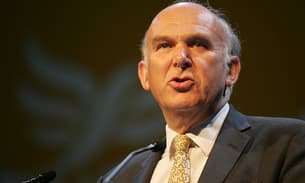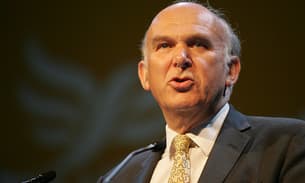
EU Commission expenses highlight lack of transparency in Brussels
With the European agenda dominated by financial woes, IMF bailouts and budget cuts, it is hard not to balk at the EU’s request for a budget increase of €6.2bn in April.
The fact that the European Court of Auditors have not signed off on the EU’s accounts for 16 years makes the pill even harder to swallow.
In approaching Europe with a critical eye one of the biggest challenges is to avoid being branded a euro-sceptic. Criticism of EU spending should not be seen as a war cry or an attempt to undermine the European project. Rather, it is part of a drive towards a more transparent and accountable political system.
At a time when public confidence has been dented by lobbying and revolving door scandals in Parliament and the Commission, only vastly improved transparency will give citizens the assurances they need about EU expenditure.
We are yet to see any real results from the 2005 European Transparency Initiative (ETI) which has not provided complete and detailed accounts of Commission grants and expenditure in the Financial Transparency System (FTS), a comprehensive database of EU funding. Neither is there a mandatory register of lobbyists operating in Parliament and the Commission, which would enable European taxpayers to see what special interest lobbyists get up to with the legislators and officials we have paid.
The FTS has been in place for over four years and yet its lack of detail makes it almost useless. The Bureau of Investigative Journalism’s research was impeded by Commission press officers who took two months to respond to requests, avoided questions, advised journalists that they “considered the matter to be closed” and referred questions to FOI procedures.
MEPs have been refused information about private jet travel and hotel expenses in parliamentary questions and been given incorrect data by the Commission. Martin Ehrehauser, an Independent Austrian MEP, tabled the same question three times to get a clear answer about private jet travel and was told by the Commission, who only published their answers in French and German, that they “would not undertake a lengthy investigation into expenditure due to other priorities”.
It is this high-handed attitude that betrays the public. How can an organisation expect to gain respect from its own citizens and elected representatives if it refuses to explain how it is spending their money?
The figures revealed in the Bureau’s investigation should not be cast aside as supporting an euro-sceptic view. Previous investigations into government spending, like that of MPs expenses in the UK, have not been seen as an attack on an entire system of governance but a way of holding it up to public scrutiny and encouraging engagement with politics.
The public expect their politicians to behave in a honourable way and whilst the EU is calling for increased budgets the Commission is doing itself no favours by failing to pursue a transparent and open approach to expenditure.




